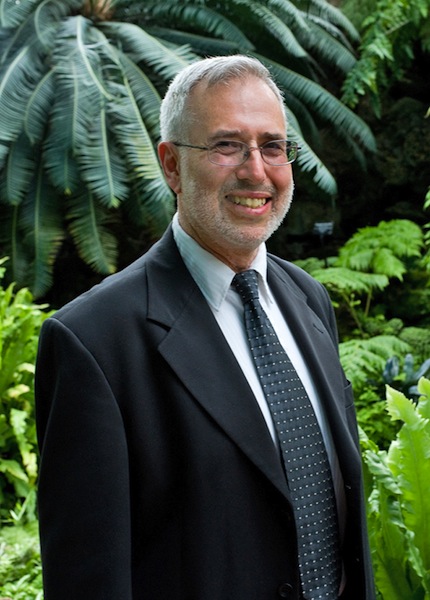Chicago Ensemble closes 40th season with music from the war years
If there’s one constant to count on from The Chicago Ensemble, it’s artistic director Gerald Rizzer’s eclectic, inspired programming. Now in its 40th season, this collective of Chicago-area professionals presents a reliably diverse lineup of works both familiar and lesser-known, with a delightful emphasis on the latter.
Sunday’s season-closing lineup, performed at the University of Chicago’s International House, was no exception. Rizzer was joined by violinist Olga Kaler and cellist Steven Sigurdson for “Masterpieces of the War Years.” The program featured Paul Hindemith’s Violin Sonata No. 4 and Bohuslav Martinů’s Cello Sonata No. 2, with all three musicians coming together in the second half for Dmitri Shostakovich’s famous Piano Trio No. 2.
The most salient takeaways from Rizzer’s encyclopedic mini-lectures, which he delivers before each piece, were those which grounded each work in its wartime milieu: Hindemith’s mixed reception by the Nazis, Martinů’s subversive Czech nationalism, and Shostakovich’s sympathy with Jewish music and culture in the face of rampant anti-Semitism. (Here, Rizzer made reference to Shostakovich’s undersung From Jewish Folk Poetry, which Chicago Ensemble presented two seasons prior.)
Kaler plays with a rich sound and old-school-virtuoso reserve – qualities that served her well in the Hindemith. She performed the first movement commandingly, and the wistful theme of the second movement (marked “Langsam,” but with a sprightly pseudo-development section inserted in the middle) with an appealingly plain-spoken lyricism.
That being said, in both movements, the violinist and Rizzer sounded like they were playing in parallel worlds. Rather than take advantage of the expressive moments in Hindemith’s writing, both musicians appeared mostly engrossed in their own parts. Luckily, they converged somewhat in the fugal final movement, which offered a brilliant showcase for Kaler.
Sigurdson’s performance of Martinů’s Second Cello Sonata was as red-hot as Kaler’s Hindemith was cool. He effortlessly pivoted from sweeping passion to skipping fleet-footedness, bringing out the first movement’s emotive shifts without sounding disjunct. The Largo that followed is superficially tranquil, yet Sigurdson’s interpretation bristled with a tension that never quite let up until the sigh-like final note, which Sigurdson sustained at length in a hyper-controlled, single bow stroke. Besides an earthbound third movement that sounded somewhat more tentative than the previous two, Sigurdson shone in his solo spotlight.
The partnership in Martinů’s sonata proved uneven. The accented, forte piano introduction to the piece was none too emphatic in Rizzer’s hands, leaving a muddled foundation for the cello’s entrance, and his accompaniment in the third movement was similarly opaque.
Rizzer seemed to find the Shostakovich Piano Trio somewhat more intuitive territory, his contributions better befitting the score and complementing his colleagues. But collectively, this most celebrated of the three works also received the roughest performance. Kaler and Sigurdson appeared to struggle in the trio’s daunting, exposed opening, with awkward harmonics in the cello and a hyper-controlled, muted line in the violin. Over the course of the movement, the two were able to rebound from the shaky intro with rock-solid coordination and searing passion.
Throughout, however, the musicians proved more convincing in the fast and furious passages than its profundity, and often to a fault. The overeager second movement Allegro sounded more crunchy than quick-witted, and the Largo third movement more thin than hushed.
Like the Hindemith, the Shostakovich ultimately ended on a high note, thanks to a passionately-rendered fourth movement. The movement is anchored by the same emphatic Jewish theme which famously reappears in Shostakovich’s later String Quartet No. 8, and the musicians juggled the movement’s cheeky humor and grotesquerie with ease. When harmonics returned at piece’s end, recalling the intro, Kaler and Sigurdson redeemed themselves with a more secure coda.
Despite the lack of polish and mixed technical qualities, the performances were committed and largely satisfying. One looks forward to hearing what The Chicago Ensemble has up its sleeve for its 41st season.
The program will be repeated 7:30 p.m. Tuesday at Fourth Presbyterian Church. thechicagoensemble.org
Posted in Performances





